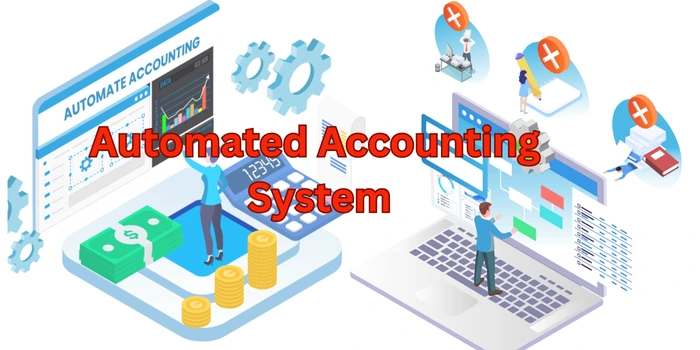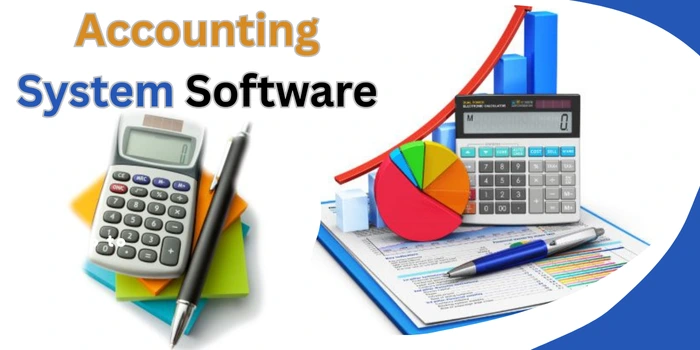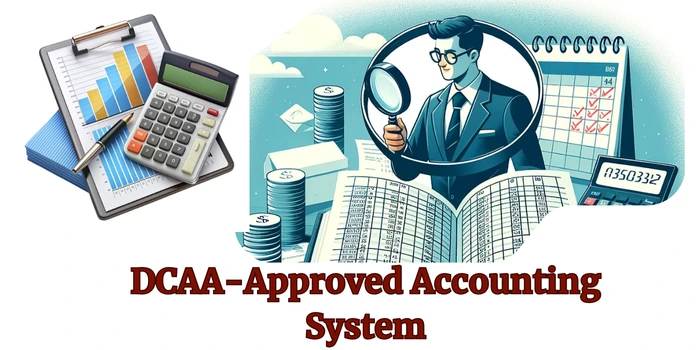
An Automated Accounting System is an effective tool designed to streamline financial management by minimizing manual work and ensuring accuracy. Unlike ordinary bookkeeping, this device automates repetitive duties such as data entry, consignment processing, payroll and reconciliation, saving precious time for companies of all sizes. By reducing human intervention, it notably lowers the chances of errors, fraud and miscalculations, principal to extra reliable economic data. Automatic structures additionally offer real-time insights into cash flow, costs, and income, permitting business owners and managers to make quicker, data-driven decisions. Additionally, they enhance compliance by automatically updating with modern tax rules and accounting standards. Small and giant companies advantage from multiplied efficiency, decreased operational costs and superior productivity. Ultimately, an Automated Accounting System no longer solely saves time, but additionally ensures monetary accuracy, assisting groups center of attention extra on growth and approach instead of guide accounting tasks.
Table of Contents
ToggleWhat Is an Accounting System?
An accounting system is a structured method used by means of groups and companies to record, track, and manipulate monetary transactions. The accounting system definition highlights its position as the spine of monetary management, ensuring accuracy in records, compliance with regulations, and clear insights into commercial enterprise performance. Whether it is a manual accounting system, a computerized accounting system, or a cloud based accounting system, the purpose stays the same: environmentally friendly economic tracking. Businesses also integrate tools like a Power System Cart to streamline processes and enhance efficiency in financial and operational management.
Why Is Accounting the Information System That Drives Business Success?
Accounting is the information system that facilitates groups to document, classify and interpret monetary records in a structured and reliable method. It serves as the spine of economic management, ensuring accuracy, transparency and duty in each transaction. With the aid of collecting and processing uncooked records, accounting presents significant insights that help commercial organization owners, managers, and investors in making informed decisions. An accounting information system (AIS) enhances this procedure by way of the use of science to organize, analyze and generate specific economic reports. These reviews are fundamental for budgeting, decision-making, compliance and long-term growth, making AIS an effective device for any profitable organization.
Which Accounting System Software Options Are Most Popular?

Modern businesses rely on accounting software system solutions that are user-friendly and efficient. Some leading platforms include:
- Sage Accounting System – Known for small to medium business accounting.
- Xero Accounting System – A powerful online accounting system for small business users.
- QuickBooks Accounting System – Popular among startups and growing companies.
- NetSuite Accounting System – A robust ERP accounting system for enterprises.
- SAP Accounting System – A highly scalable and global accounting ERP system.
- Intacct Accounting System – Strong in accounting system integration and automation.
For startups, a free small business accounting system can be a good entry point before moving into advanced solutions.
What Is the Double Entry Accounting System?
The double entry system of accounting is the basis of contemporary bookkeeping. It ensures that each transaction has two sides: debit and credit.
- In a double-entry accounting system, a (n) represents the left side of the account, which is the debit side.
- This approach enhances accuracy and prevents blunders in contrast to a manual accounting system.
What Is a Cost Accounting System?
A cost accounting system is used to track, allocate, and control business costs.
- A cost accounting system: (check all that apply.) It consists of job costing, manner costing and activity-based costing.
- A cost accounting system includes which of the following? Direct fees, indirect prices, overhead allocations and venture-specific expenditures.
This makes it vital for industries like creation, manufacturing and project-based firms.
What Is the Effect of an Internal Accounting Control System on the Value of Cash Holdings?
An internal accounting control system performs a critical function in defending a company’s economic fitness via safeguarding assets, stopping fraud and ensuring the reliability of economic reporting. It establishes assessments and balances that decrease the dangers of mismanagement whilst improving operational efficiency. By making sure appropriate authorization, documentation and reconciliation, it strengthens transparency and accountability throughout monetary processes. Strong management structures additionally enhance the administration of money holdings, shield liquidity, and ensure timely and correct reconciliation of transactions. Ultimately, a tremendous inner management framework no longer solely prevents blunders and irregularities but also enhances stakeholder confidence and helps sustainable enterprise growth.
What Are the Best Options for Small Businesses?
Choosing the best accounting system or best small business accounting system is predicated on affordability, ease of use and scalability. Many entrepreneurs opt for:
- Simple accounting system for small business
- Free accounting system for small business
- Online accounting system for small business
- Cloud-based systems like Xero Accounting System and QuickBooks Accounting System
These preferences grant automation, reporting, and compliance, besides excessive costs.
How Does a DCAA-Approved Accounting System Help Government Contractors?

An accepted Accounting System performs a necessary role for authorities and contractors by making sure compliance with the Defense Contract Audit Agency (DCAA) standards. It presents correct value tracking, desirable segregation of direct and oblique costs, and targeted timekeeping archives that meet federal guidelines. With a DCAA Compliant Accounting System, contractors can reveal economic integrity, limit audit risks, and have confidence with the authorities agencies. This approval additionally helps companies qualify for cost-reimbursable and time-and-material contracts, which are regularly unavailable barring compliance. In short, having each a DCAA Approved Accounting System and a Compliant Accounting System will increase opportunities, ensure transparency, and protect contractors at some stage in audits.
What Are the Types of Accounting Systems?
Businesses can select from a couple of sorts of structures depending on their size, industry, and compliance requirements:
- Manual Accounting System: Involves recording monetary transactions via hand, commonly in ledgers or journals.
- Computerized Accounting System: Uses a specialised accounting system software program to automate tasks.
- Cloud Accounting System: A modern approach where financial data is stored online, accessible anytime.
- Integrated Accounting System: Hyperlinks accounting with one-of-a-kind features along with HR, payroll, and CRM.
- Automated Accounting Systems and control : Reduces guide intervention and ensures quicker reporting.
- Project Accounting System: Tracks revenues and prices for particular projects.
- Fixed Asset Accounting System: Manages depreciation, asset valuation, and asset lifecycles.
- Construction Accounting System: Tailored for contractors to manage labor, material, and job costing.
- Manufacturing Accounting System: Focuses on manufacturing expenses and stock management.
- Hotel Accounting System: Designed for the hospitality zone to manipulate rooms, reservations, and billing.
- Trust Accounting System: Ensures compliance and correct reporting for having faith funds.
- Payroll Accounting System: Handles worker wages, deductions, and taxes.
- Financial Accounting System: Concentrates on getting ready financial statements for external reporting.
- Business Accounting System: A general-purpose gadget designed for average enterprise use.
- Investment Accounting System: Helps in tracking portfolio, ROI, and investment income.
- Project Cost Accounting System: Manages project budgets and cost allocations.
- Core Accounting System: Refers to the vital methods of bookkeeping, AP, and AR.
- Accounting Practice Management System: Assists accounting companies with workflow, billing, and consumer management.
- Route Accounting System and Beverage Route Accounting Software Distributor Management System – Industry-specific structures for distribution businesses
- Accounting System For Schools – Specialized for managing school finances.
How Do Accounting Systems Ensure Legal and Tax Compliance?
Corporations need to corporate norms, economic reporting requirements and tax legal guidelines. An accounting machine ensures compliance by retaining correct documents of all monetary transactions. This makes it less difficult to calculate taxable income, file returns, and supply helpful files at some point of audits. An advanced accounting software program frequently consists of tax calculation features, routinely making use of the right rates.
How Do Small, Medium and Large Businesses Use Accounting Systems Differently?
Small organizations regularly count on simple, low-priced accounting software programs or even guide systems to control primary earnings and expenses. Medium-sized businesses, with greater complicated operations, commonly undertake computerized systems with elements like payroll, stock management, and budgeting. Large companies use state-of-the-art ERP structures that combine accounting with supply chain, human resources, and purchaser relationship management. They additionally put into effect superior internal controls and hire groups of accountants to manipulate data. Thus, the scale and points of an accounting device generally rely on the dimension and complexity of the business.
How to Choose an Accounting System Setup?
The right accounting system setup depends on business needs. Companies must evaluate whether they need:
- Accounting CRM system integration for sales and customer management.
- Accounting system online solutions for remote work.
- Accounting system integration with payroll, ERP, or POS systems.
Accounting System Software for Small Businesses

For startups and entrepreneurs, selecting the best accounting system for small business is vital. Many prefer accounting system for small business free options when starting.
Features small businesses look for include:
- Invoicing and billing
- Expense tracking
- Payroll management
- Tax calculation
- Financial reporting
Cloud-based alternatives like QuickBooks, Xero, or Zoho Books are frequently regarded as the best accounting systems for small businesses due to the fact that they are affordable, scalable, and easy to use.
Objectives of an Accounting System
The primary targets of an accounting gadget include:
- Recording Transactions: To document all financial activities systematically.
- Ensuring Accuracy: Stopping mistakes in financial reporting by ensuring accuracy.
- Providing Financial Information: To help stakeholders, consumers and control make choices.
- Ensuring Compliance: To meet tax duties and regulatory requirements.
- Safeguarding Assets: To display money, go with the flow and forestall fraud or mismanagement.
- Facilitating Auditing: To make it simpler for inside and exterior auditors to evaluate economic data.
How Does a Manual Accounting System Work?
A guide accounting machine works through handwritten entries in journals and ledgers. Every monetary transaction is recorded manually and later posted into one-of-a-kind accounts. For example, if an enterprise sells items worth $500, the accountant will enter the transaction in the income journal and then submit it to the customer’s account and the conventional ledger. While this machine is simple, it has sizable drawbacks such as susceptibility to human errors, problems in dealing with giant volumes of data, and time-consuming processes. Despite its limitations, some small organizations and rural businesses proceed to use guide structures due to low cost and simplicity.
How Does an Accounting System Help in Financial Decision-Making?
An accounting device offers accurate and properly timed statistics that managers use for making financial decisions. For example, earnings and loss reviews expose whether or not an enterprise is developing or struggling, whilst cash flow statements exhibit liquidity tiers essential for paying payments and investing. Detailed fee reviews spotlight areas of overspending, permitting price management strategies. In addition, stability sheets deliver a picture of assets and liabilities, helping managers discern whether or not to borrow, make investments, or extend. In this way, accounting systems act as a choice-help tool for brief-term operations and long-term strategic planning.
What Role Do Internal Controls Play in an Accounting System?
Internal controls are insurance guidelines and techniques inner an accounting device designed to defend assets, ensure accurate economic reporting and stop fraud. Automated accounting system examples consist of segregation of responsibilities, authorization of transactions, normal audits and the right of access to controls in software. By means of enforcing sturdy internal controls, companies can lower the dangers of mismanagement and financial losses. For example, requiring 2 approvals for massive repayments prevents unauthorized transactions. Internal controls, moreover, assist in building confidence with shoppers and regulators through demonstrating duty and reliability in financial control.
What Is an ERP Accounting System?
An ERP accounting system is an effective answer that combines usual accounting features with broader organization aid planning abilities to create a unified enterprise administration platform. Not like a standalone accounting system and an ERP machine, the accounting framework integrates financial facts with indispensable areas collectively, inclusive of delivery chain control, human resources, stock, customer relationship control and standard operations.
This integration guarantees that companies benefit from real-time visibility into monetary transactions, allowing smarter choice-making, extended compliance and streamlined reporting. By the usage of an accounting ERP system, companies remove statistical silos, minimize guide errors, and automate repetitive processes, leading to greater efficiency and value savings. With ERP accounting software, each and every department—from finance to logistics—can get right of entry to accurate, up to date economic insights, in the end driving growth, scalability, and long-term success.
FAQs
What Is an ERP System in Accounting?
An ERP system in accounting centralizes all commercial enterprise features to improve efficiency. For example, companies can track procurement, sales, payroll, and accounting on multi multi-functional platform.
Why is an accounting system important for businesses?
It ensures suitable economic control, approves adherence to tax regulations, guards in opposition to fraud, and offers updated information on an enterprise’s economic situation for advanced decision-making.
What features should I look for in an accounting system?
Invoicing, value tracking, payroll control, economic reporting, tax compliance, inventory tracking and cloud accessibility are important functions.
Is accounting software secure?
Most current accounting systems use encryption, multi-element authentication, and everyday backups to ensure monetary records stays safe from unauthorized get right of entry to or loss.
How does an accounting system improve decision-making?
It affords real-time reports and analytics, assisting business owners and bosses in examining profitability, managing fees, forecasting cash flow and graph future investments.
Do I need an accountant if I use an accounting system?
Yes, while accounting systems simplify monetary responsibilities, an accountant’s expertise ensures compliance, interpretation of stories and strategic financial planning.
What is an automated accounting information system?
An automated accounting information system (AIS) uses computer software to record, process, and manage financial transactions efficiently. It helps in reducing manual errors and speeds up financial reporting for businesses.
